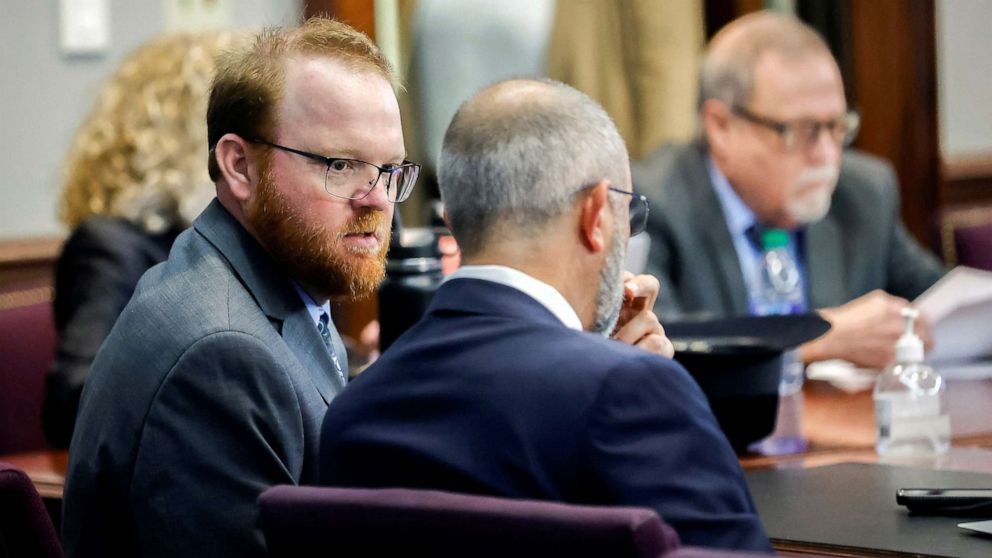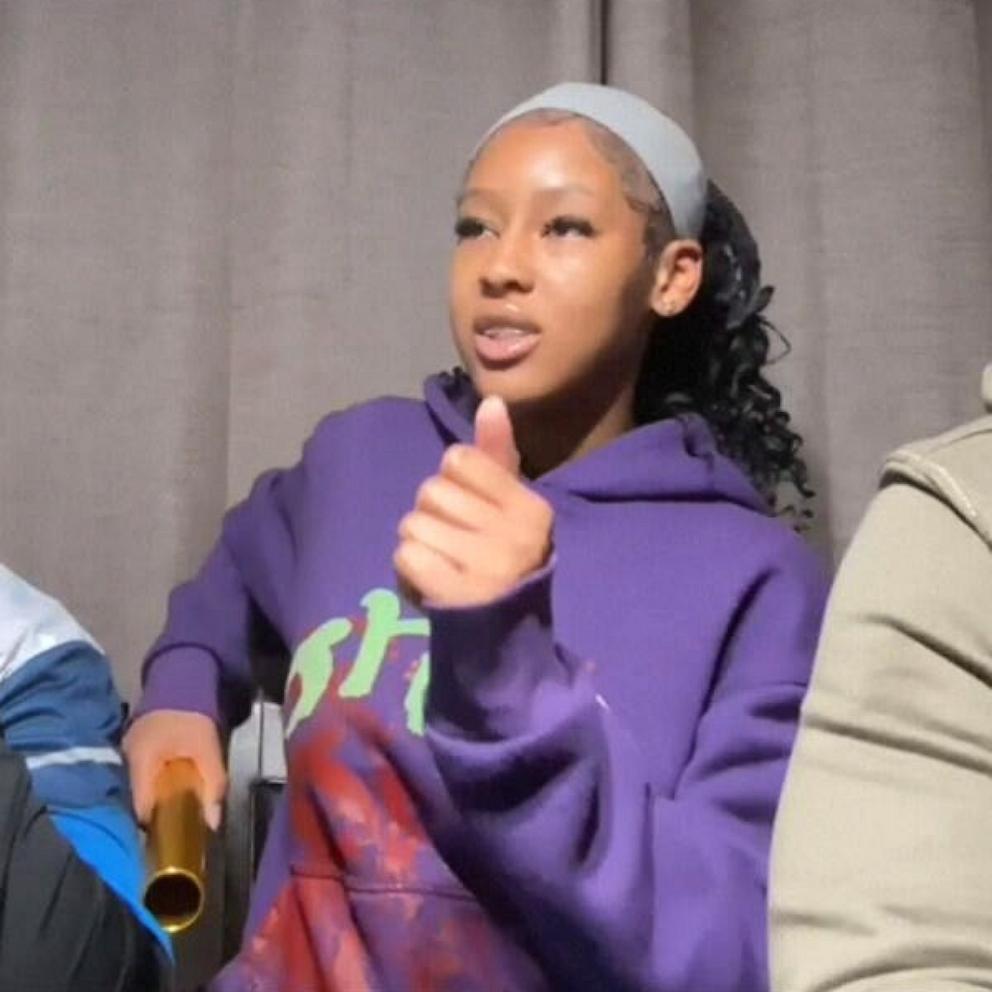Judge rejects plea deal for father and son in federal case over Ahmaud Arbery's murder
A U.S. District Court judge rejected on Monday a plea deal that would have allowed the white Georgia man and his father convicted in the murder of Ahmaud Arbery to serve a large part of their sentences in federal prison.
Judge Lisa Godbey Wood's decision to turn down Travis McMichael and Gregory McMichael's plea agreements with federal prosecutors came after Arbery's parents and two aunts gave emotional statements asking the judge to reject the deal and proceed with a federal trial next week.
"All they would have to do is stand up and say that they were motivated by hate and then this court will concede to their preferred conditions of confinement," Arbery's mother, Wanda Cooper-Jones, told the judge. "I do not need to hear them say they were motivated by hate. That does me no good. It does my family no good."
She added, "It is not fair to take away this victory that I prayed and I fought for. It is not right. It is not just. It is wrong. Please listen to me. Granting these men their preferred conditions of confinement would defeat me. It gives them one last chance to spit in my face after murdering my son."
Following Travis McMichael's hearing on Monday, a second hearing was scheduled on the plea deal the government's attorneys negotiated with 66-year-old Gregory McMichael. However, Wood said her decision would be the same in the case of the elder McMichael, whose attorney agreed to cancel the hearing.
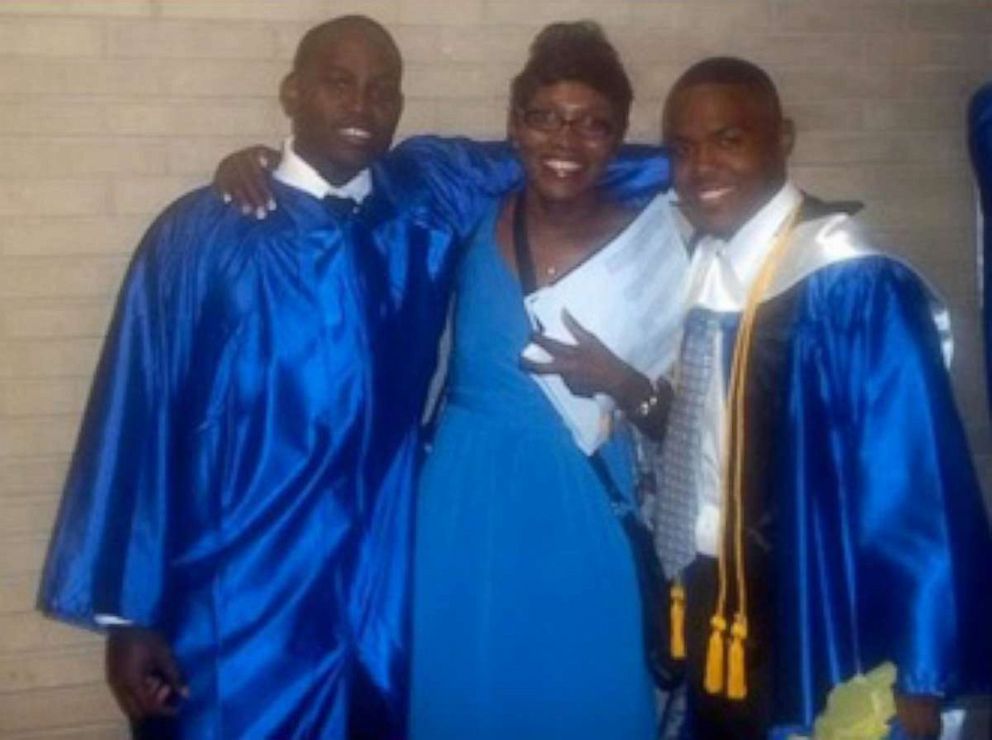
Both men and their neighbor, 52-year-old William "Roddie" Bryan, were convicted on state murder charges in Arbery's 2020 death. They were sentenced to life in prison. Travis and Gregory McMichael were sentenced without the possibility of parole.
A federal prosecutor told the judge during Monday's hearing that the agreements called for the men to immediately be turned over to the federal Bureau of Prisons to serve 30 years in a federal penitentiary before being returned to the Georgia Department of Corrections to serve the remainder of their sentence.
Wood gave both men the option to go forward with their guilty pleas and risk her giving them a harsher sentence than what they agreed to, or to withdraw their pleas and go to trial starting on Monday.
The judge gave them until Friday to decide.
Prior to the judge's decision, federal prosecutor Tara Lyons touted the plea deal as one that "powerfully advances the larger interest of justice."
"Through this resolution, the defendants will accept responsibility for the full nature of their crime, admitting publicly in front of the nation that this offense was racially motivated," Lyons said.
Federal prosecutors filed notices of plea agreements for Travis McMichael, 35, and Gregory McMichael, on Sunday in U.S. District Court in Brunswick, Georgia, and requested Monday's hearing for Wood to review the deal.
No plea agreement was announced for Bryan.
In announcing her decision, Wood said the plea agreements would lock her into a sentence of 30 years or 360 months.
"Here in this relatively early stage in the case, I can't say that 360 months is the precise, fair sentence in this case," Wood said. "It could be more, it could be less, it could be that. But given the unique circumstances of this case and my desire to hear from all concerned regarding sentencing before I pronounce sentence, I am not comfortable accepting the terms of the plea agreement."
Prior to Monday's hearing, Arbery's relatives slammed the plea deal, alleging it was done behind their backs. But Lyons said her office was in frequent communication with attorneys for Arbery's family and that they assured prosecutors the family would not oppose the plea arrangements.
"We respect the court's decision to not accept the sentencing terms of the proposed plea and to continue the hearing until Friday," Assistant U.S. Attorney General Kristen Clarke said in a statement. "The Justice Department takes seriously its obligation to confer with the Arbery family and their lawyers both pursuant to the Crime Victim Rights Act and out of respect for the victim."
Clarke added, "Before signing the proposed agreement reflecting the defendants' confessions to federal hate crimes charges, the Civil Rights Division consulted with the victims' attorneys. The Justice Department entered the plea agreement only after the victims' attorneys informed me that the family was not opposed to it."
Arbery was out for a jog on Feb. 23, 2020, in the Satilla shores neighborhood near Brunswick, Georgia, when the McMichaels assumed he was a burglar, armed themselves and chased him in their pickup truck. Bryan joined the five-minute pursuit, blocking Arbery's path with his truck and recorded video on cellphone of Travis McMichael fatally shooting Arbery with a shotgun during a struggle.
Arbery's parents, Cooper-Jones and Marcus Arbery, asked the federal court to be allowed to assert their right under federal law to oppose the plea deal directly before the court.
"The DOJ has gone behind my back to offer the men who murdered my son a deal to make their time in prison easier for them to serve," Cooper-Jones said in a statement before Monday's hearing. "I have made it clear at every possible moment that I do not agree to offer these men a plea deal of any kind. I have been completely betrayed by the DOJ lawyers."
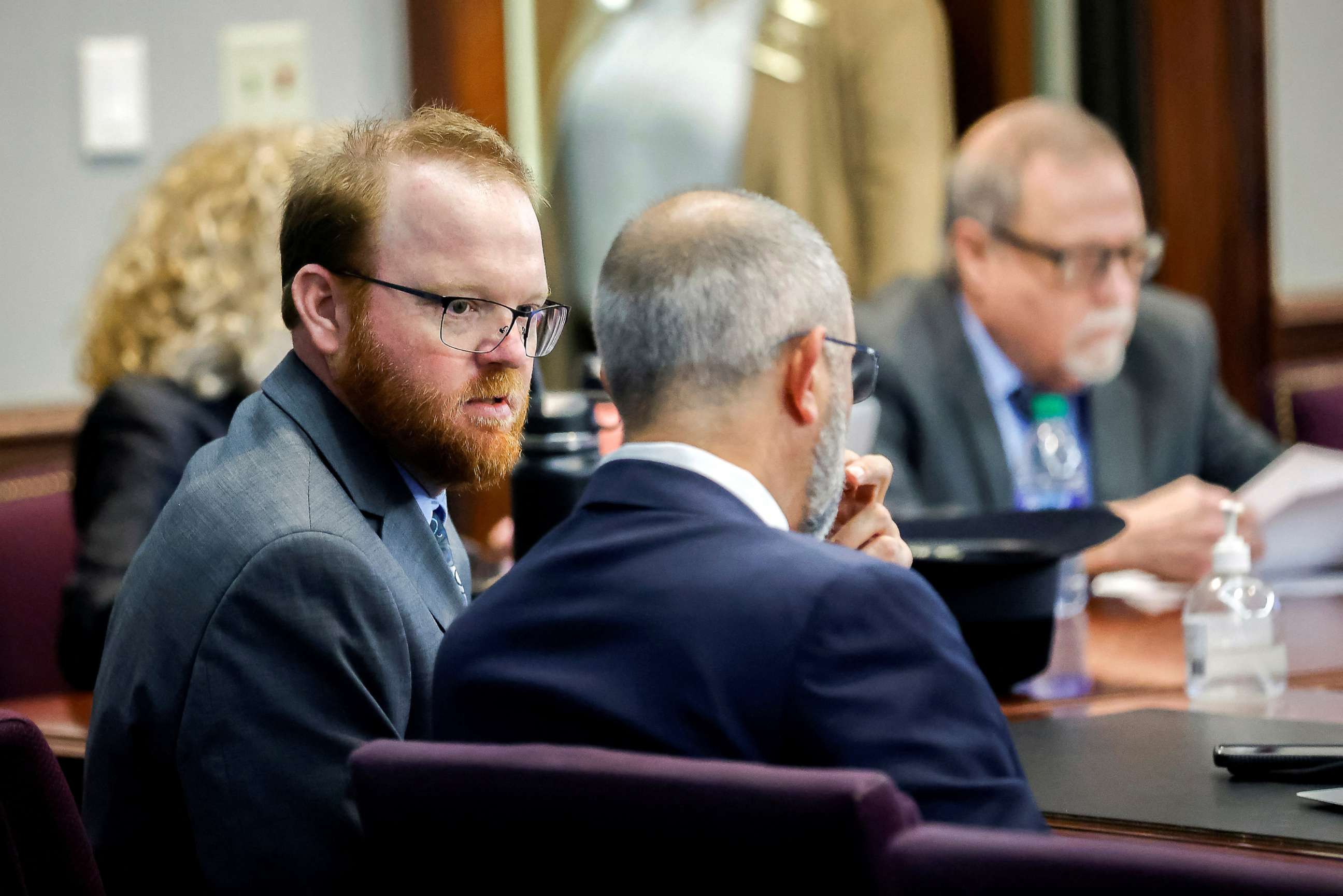
When Derek Chauvin, the former Minneapolis police officer convicted on state charges of murdering George Floyd, reached a plea agreement on federal charges that he violated Floyd's civil rights, he asked to be sent to federal prison even though he is expected to serve more time than the 22 years he was sentenced to in state court.
In response to Chauvin's plea deal, legal experts told ABC News that federal penitentiaries run by the Bureau of Prisons tend to better than state prisons. The experts said federal prisons have fewer overcrowding issues, more comfortable bunks and even better food and educational resources than often cash-strapped state prisons. High-profile inmates, especially former law enforcement officers like Chauvin and Gregory McMichael, tend to also get greater protection in federal prison, the experts said.
The federal Bureau of Prisons estimated that the annual cost of housing an inmate in a federal facility in 2020 was a little over $39,000.
The annual cost of housing an inmate in a Georgia state prison is roughly $20,000, according to a 2015 study by the Vera Institute of Justice, a nonprofit research and policy organization.
"Federal prison is going to be a lighter sentence for these men," Lee Merritt, an attorney for Cooper-Jones said during a news conference prior to the Monday's hearing.
Merritt also cited an ongoing investigation by the Department of Justice into conditions at Georgia state prisons that was launched in September.
The DOJ said in a statement that the investigation is primarily focused on whether Georgia provides inmates reasonable protection from physical harm at the hands of other prisoners and staff.
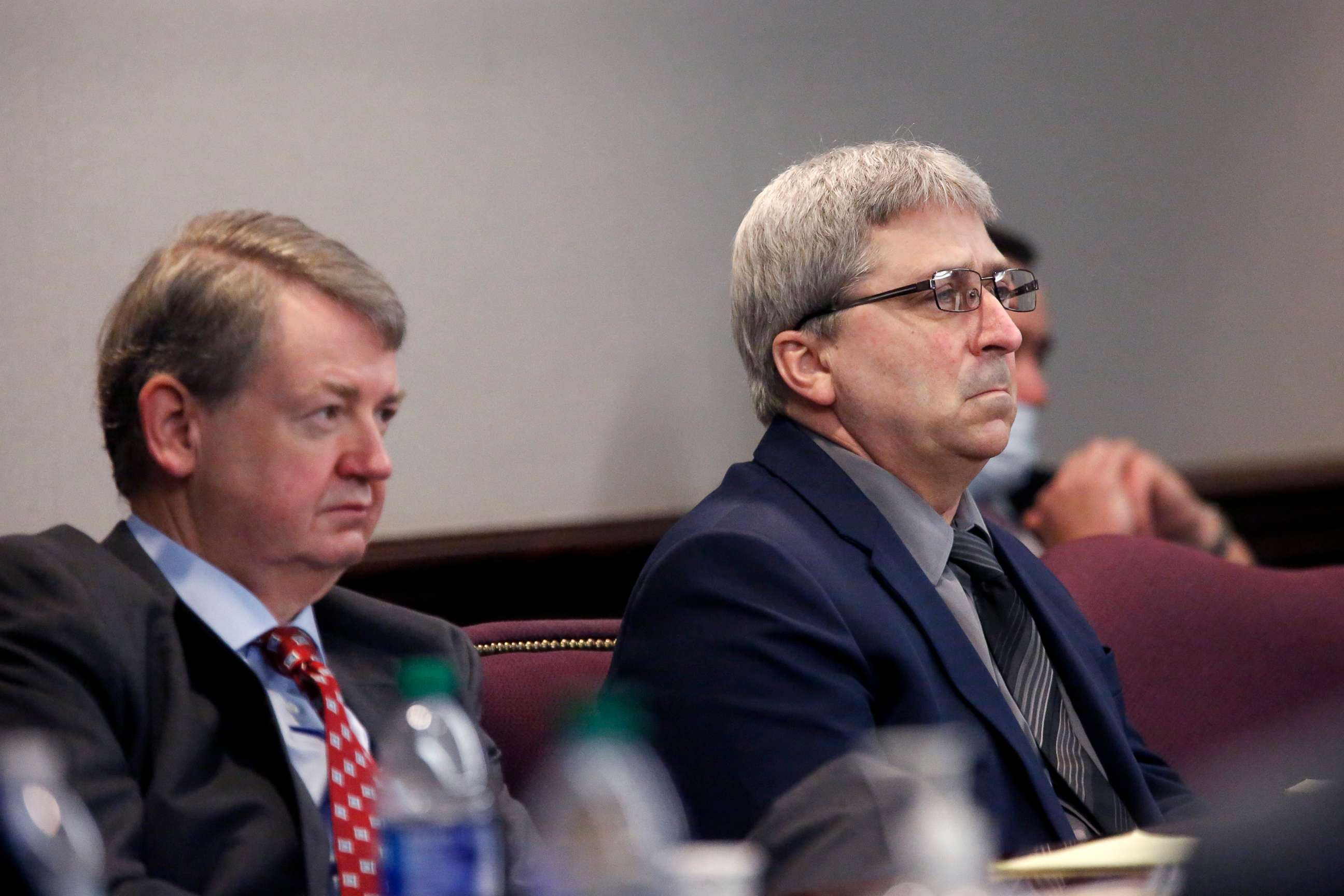
Cooper-Jones said at Monday's news conference that she found the plea deal "disrespectful."
She said she learned of the deal on Sunday and has had discussions with DOJ attorneys since.
"I told them very, very adamantly I wanted them to go to state prison and do their time," Cooper-Jones said.
In a separate news conference, Marcus Arbery said that finding out about the deal made him "mad as hell."
He said his son's death was a racially-motivated murder and "we want 100% justice, not half justice."
He added, "I don't want no chance of trying to make their lives easy."
ABC News' Janice McDonald and Alexander Mallin contributed to this report.
